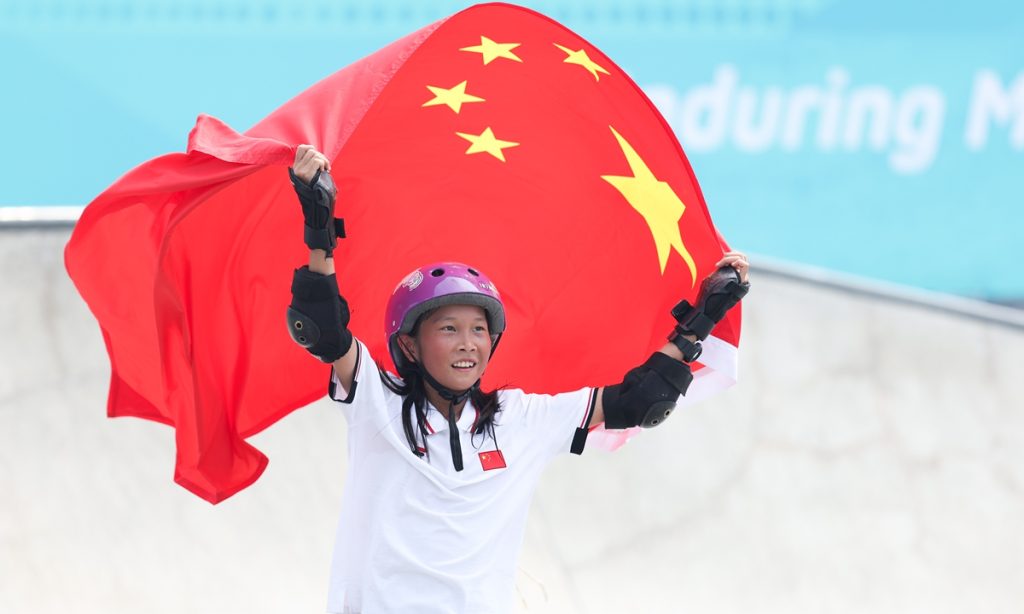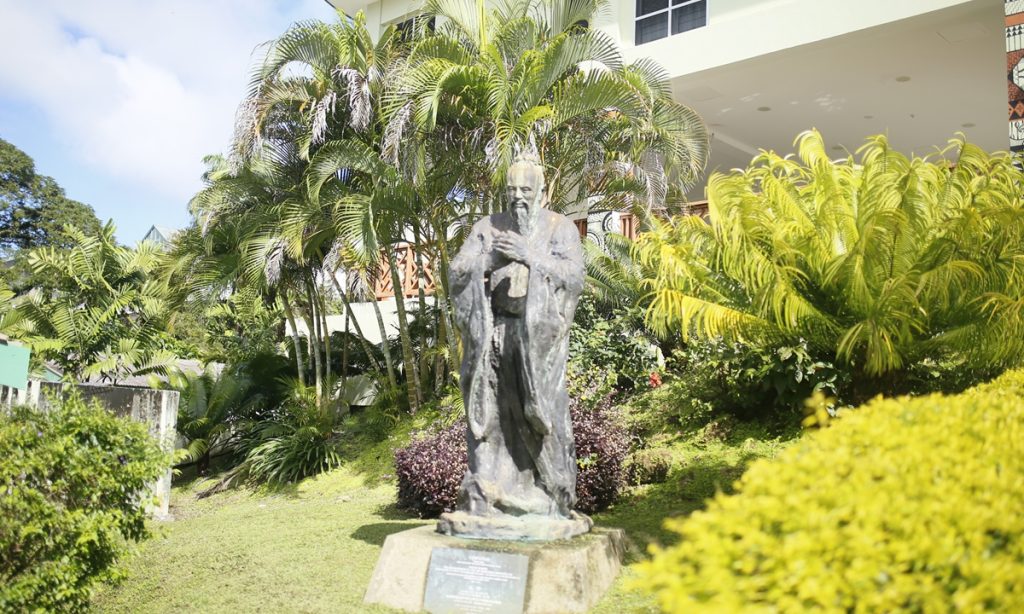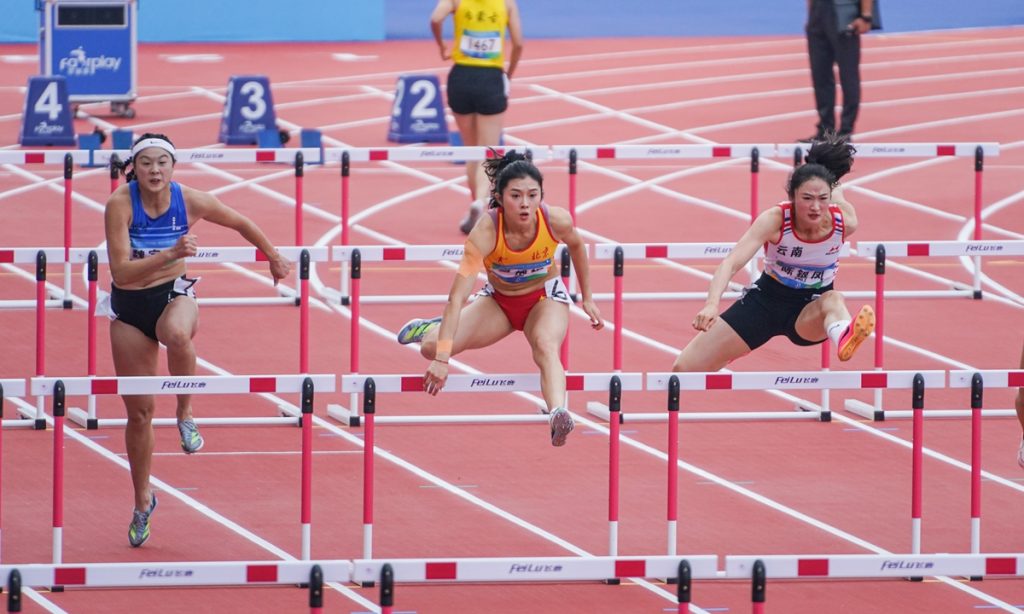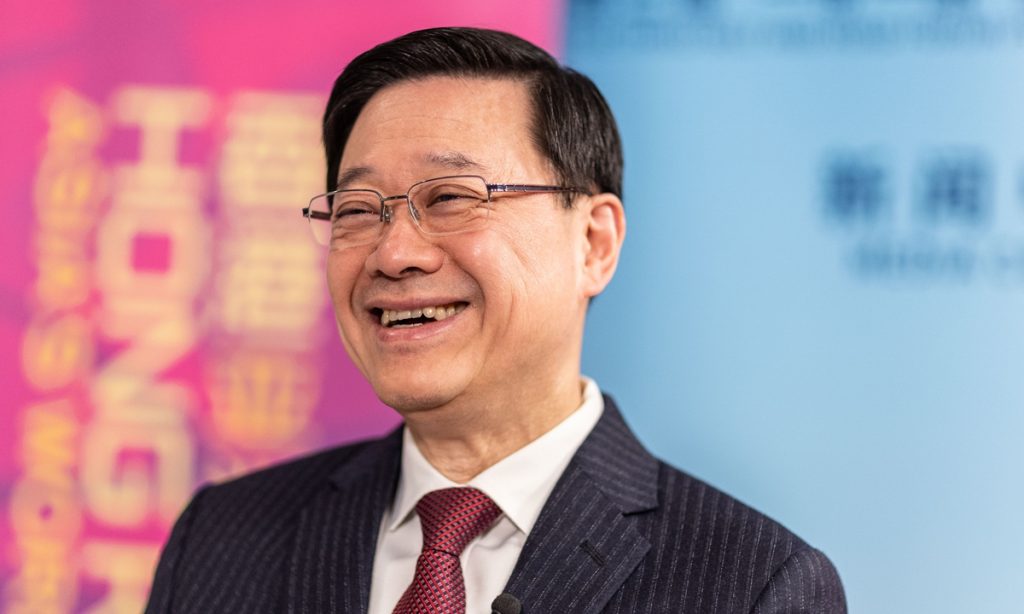China’s rural version of ‘NBA’ attracts American basketball stars
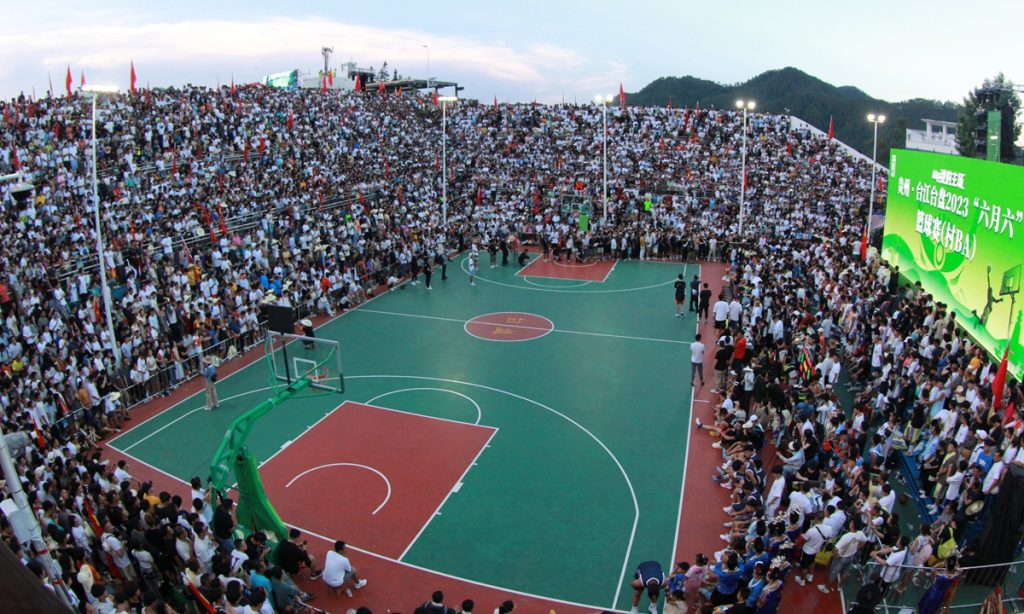
It was close to midnight Beijing time. In Taipan village, a small mountain village in Guizhou Province in Southwest China, a basketball game was underway. Tens of thousands of spectators filled the court, and every time when points were scored, the sidelines rang with cheers and the banging of pots and pans. Incredibly, millions of netizens watched the game on their cell phones.
Starting last summer, a phenomenal basketball tournament was born in this small village of 1,200 people, generating national attention. People call this village basketball tournament "Village BA," and some compare it to the famed Rucker Park, a basketball mecca in New York City.
The 28-year-old Ou Minghui is a Guizhou native. He led his team to win the championship in the previous Village BA tournament and he won the tournament MVP. Ou started playing basketball at the age of 8 and his idol is Kobe Bryant. Although Ou's current job is raising cattle, playing basketball has always been his dream.
In China, amateur basketball players like Ou are called "grassroots players." Most of the participants in the Village BA tournament come from Taipan and its surrounding villages, including farmers, cooks, drivers. Even people who work in nearby provinces, such as Guangdong, take time off to play in the tournament.
"The professional players have their dreams and we have ours," Ou said.
Basketball has a long tradition in Taipan, where the first basketball court, though substandard, was built in 1936. Since then, during summer festivals when the Miao people - one of the 56 ethnic groups in China, and many of the villagers in Taipan are Miao who still retain their own culture and customs - celebrate the harvest, Taipan village has organized basketball tournaments, inviting villagers from the neighboring areas to participate.
For decades, the prizes for contest winners were never paid in cash. In the past, villagers took out their own rice and gave it to the winners of the tournament. Nowadays, the top teams receive prizes such as cows, sheep and piglets, all of which are local specialties.
Whether on or off the court, the Village BA basketball tournament brings people a completely different feeling from professional events. Many spectators stand on hillsides and rooftops, or climb up ladders or treetops just to find the best viewing angle. Once these on-site spectators used their smartphones and social media networks to share their joy, viewers from all over the country were soon attracted to Village BA as well.
Lin Yongping, 55, and her family drove three hours from another city in Guizhou Province to the village of Taipan. It was her first time to see a basketball game live.
"It doesn't matter to me how the match result goes," Lin said. "I don't really know the basketball rules but we cheer for whoever scores."
Basketball is very popular in China and people are well aware of the NBA games. In July, Minnesota Timberwolves player Li Kai'er, formerly known as Kyle Anderson before his naturalization, became a player for the Chinese national team and participated in the FIBA Basketball World Cup.
China's basketball legend Yao Ming, who once played for NBA franchise the Houston Rockets, is currently the President of the Chinese Basketball Association (CBA). Speaking about the Village BA, Yao said he was afraid he wouldn't be able to snag a ticket, even though it's free.
There were quite a few NBA elements at the Village BA games. Many spectators wore jerseys of Michael Jordan, LeBron James, Stephen Curry, Tracy McGrady, Jeremy Lin and other stars when watching the games.
Not long ago, the NBA and Village BA established some connections.
As part of his China Tour, Miami Heat player Jimmy Butler came to the village of Taipan. Wearing Miao silver jewelry and carrying Miao embroidery, Butler was applauded and cheered by thousands of fans. When asked about how he felt, Butler repeated the word "incredible" several times in his answer. When he left the village, he asked the staff for pictures and video footages and shared this unforgettable experience on his personal social media account.
Wu Xiaolong, 31, a villager from Taipan village, was particularly excited by Butler's arrival. "I watch NBA games every year," Wu said. "Now foreign friends also see the games in our hometown, I feel very happy and proud."
US basketball star Stephon Marbury, who has worked for many years in China's top basketball league CBA, also came to the Village BA to train with local young players. Brooklyn Nets player Ben Simmons, on the other hand, donated a basketball court to a town in Guizhou. "I have visited China many times since I was a teenager, and I am deeply touched by the warmth and friendliness of the Chinese people and their love for basketball." Simmons said he hopes to bring the joy of basketball to more people by donating the court.
An American netizen on Twitter commented that whether it's the NBA or the Village BA, the people of China, like the people of the US and the rest of the world, have the right to enjoy sports and to unite in the pursuit of a better life.
For Village BA spectators and local people, Village BA is more than just a basketball game, it feels like a carnival.
At halftime, there are various cultural performances - people dressed in ethnic minority costumes, audience members singing Cantonese songs from the 1990s, and children break-dancing to the tune of song "I will survive."
Outside the stadium, local villagers have set up stalls selling specialty snacks such as cold noodles, fried yam and ice jelly, most of which sell for less than $1 each. There are also villagers who offer ethnic minority clothing for rent for out-of-town visitors to use for photo shoots and social media posts.
Cen Jianglong, a villager from Taipan village, quit his job outside Guizhou last year and returned home, where he and his wife opened a restaurant near the stadium. The restaurant does very good business during the games in July and August. "The villagers hope that the Village BA will drive everyone to get rich together," Cen said.
Village BA offers opportunities and hope for Chinese villages like Taipan. During the 2022 games, the village welcomed over 400,000 tourists, generating combined tourism revenue of about $3 million.
In Rongjiang county, a few hours away from Taipan village by car, a local soccer tournament has had the same impact as the Village BA. At the recent China International Fair for Trade in Services in Beijing, the English Premier League signed a cooperation agreement with the village soccer tournament, with both sides planning training sessions and content interaction, and considering organizing friendly soccer matches.
This year, the Village BA is being held as a national tournament in villages across the country as part of China's plan to revitalize the countryside. In October, the Village BA finals will return to its birthplace in Taipan, where the game is often played from dawn to dusk. In this area, basketball games are often played from darkness to dawn, known locally as "dawn culture."
"Kobe once said, 'Have you ever seen the scene of Los Angeles at 4 am?'" A fan wrote on social media. "I'd say that you can see Taipan at 4 am through the Village BA."
